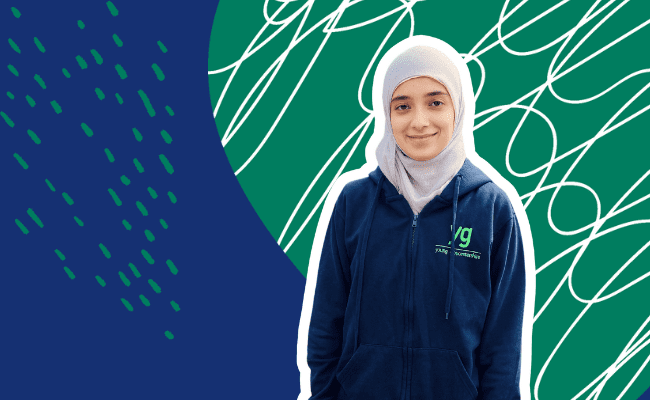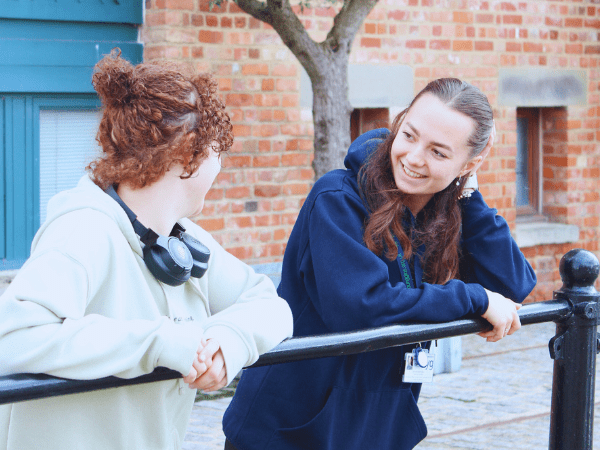
Ramadan 2024
Youth Worker, Khatija Mayat helps us learn more about Ramadan and how we can support our friends and colleagues.
“As we gear up for the start of the Islamic holy month of Ramadan, Muslims around the globe are eagerly awaiting its arrival. Expected to begin around Monday, March 11th (following the arrival of the new moon), Ramadan typically lasts 29 or 30 days, following the lunar calendar. It’s known as a time for fasting— a key pillar of Islam—where Muslims refrain from eating or drinking during daylight hours. But it’s not just about abstaining; Ramadan also encourages reflection and a simpler, more mindful way of living, both physically and mentally.
“If you’re aware that any of your friends or colleagues are observing Ramadan, it’s perfectly fine to check in and see how they’re doing. Don’t worry about eating or drinking around them, or offering them a drink—it’s not offensive. In fact, part of the fasting experience is about maintaining discipline in everyday situations, similar to commitments like taking a break from social media (which can sometimes be even tougher!). Alongside this discipline, fasting also aims to cultivate empathy for those who may not have access to the things we often take for granted, reminding us to be grateful for the abundance of resources available to us.
“Ramadan isn’t just about fasting—it’s a vibrant time when over a billion Muslims worldwide unite in prayer, focus on charitable acts, and share meals together at the beginning and end of each fasting day. While some circumstances may prevent Muslims from fasting every day of the month, participating in these communal activities helps them stay connected to their community. Evening prayers, in particular, are a special time when Muslims gather in mosques to listen to the recitation of the Islamic Holy Scripture, the Qur’an, fostering a sense of unity and spiritual connection.
“Another significant aspect of Ramadan is its connection to the Qur’an. Muslims believe that this holy month was when the Qur’an was revealed to the Prophet Muhammad, particularly on a momentous night known as “the Night of Destiny.” This night holds immense importance in the Islamic calendar, as it is considered the most sacred. While its exact date remains hidden, it occurs during the last ten nights of Ramadan. Muslims eagerly seek out this night each year, believing that it marks a time when human provisions are renewed for the upcoming year and worship during this night is deemed “better than a thousand months” of worship. It’s a quiet and peaceful occasion, filled with spiritual significance.
“Throughout Ramadan, Muslims place extra emphasis on connecting with their faith, observing regular prayer times, and giving generously to charity, with a minimum donation of 2.5% of one’s annual wealth. These practices are among the five Pillars of Islam; Shahada (Faith), Salat (Prayer), Zakat (Charity), Sawm (Fasting), Hajj (Pilgrimage).
“As Muslims strive to increase their good deeds and spiritual devotion throughout Ramadan, the culmination of the month is marked by a joyous celebration known as Eid. On this special day, Muslims congratulate one another for their efforts in observing Ramadan, hoping for acceptance and blessings from God. It’s a time for gathering with loved ones, exchanging gifts, and enjoying festive meals during the daytime once again. Eid serves as a joyful conclusion to the month-long journey of fasting, reflection, and spiritual growth.
“During Ramadan, colleagues who observe fasting may face unique challenges. However, offering support can make a world of difference. Here are some practical tips to show solidarity and understanding:
- Be Mindful of Meal Times: Recognize that fasting colleagues may not participate in lunch or coffee breaks during daylight hours. When scheduling meetings or team events, consider their fasting schedule.
- Offer Encouragement and Understanding: Understand that fasting can be physically and mentally demanding, especially towards the end of the day. Offer words of encouragement, check in with your fasting colleagues, and be understanding of any changes in their mood or productivity.
- Plan Thoughtful Social Events: Be mindful of your colleagues’ dietary restrictions during Ramadan when planning social gatherings. Consider organising iftar gatherings after sunset, where everyone can break their fast together and enjoy a meal.
- Respect Individual Choices: Remember that fasting is a personal choice, and not all Muslims may observe Ramadan in the same way. Respect your colleagues’ decisions regarding fasting and refrain from making assumptions or judgments.
- Educate Yourself: Take the opportunity to learn more about Ramadan and its significance. Foster a culture of respect, understanding, and solidarity throughout the year.
“By implementing these simple but meaningful gestures, we can create an inclusive and supportive workplace environment for all colleagues during Ramadan and beyond. Let’s celebrate our differences and come together.”
You may also like...
The Story of an Arcus Family

Supporting Ukrainian Refugees

Understanding the ‘Hidden Victims of Crime’ Project

World Suicide Prevention Day 2024

